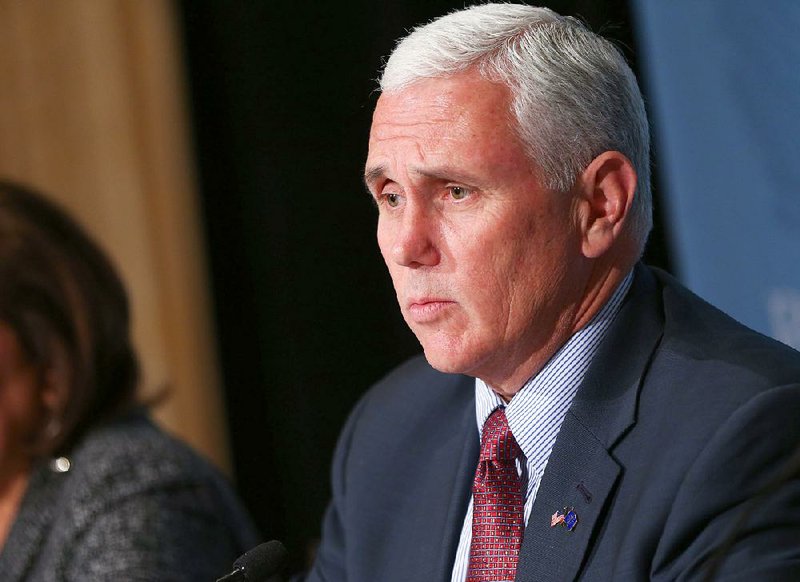INDIANAPOLIS -- A lawsuit challenging the Indiana governor's decision to stop state agencies from helping resettle Syrian refugees alleges the action wrongly targets the refugees based on nationality and violates the U.S. Constitution.
The American Civil Liberties Union of Indiana filed the lawsuit in federal court Monday night on behalf of the Indianapolis-based nonprofit Exodus Refugee Immigration. It accuses Gov. Mike Pence of violating the U.S. Constitution's equal protection clause and Title VI of the Civil Rights Act by accepting refugees to Indiana from other countries but not from Syria.
The first-term Republican governor objected to plans for refugees to arrive in Indiana after the deadly attacks in Paris. Five days after the Nov. 13 attacks, a family that had fled Syria was diverted from Indianapolis to Connecticut when Pence ordered state agencies to halt resettlement activities.
The ACLU of Indiana filed a motion Tuesday asking a federal judge to put a temporary hold on Pence's directive that state agencies stop helping with the resettlement of Syrian refugees by using federal money to provide services such as housing and medical care.
Legal director Ken Falk said those refugees "have been vetted extensively by the federal government."
"Our lawsuit is quite simple. It argues that the governor has no right to bar refugees because doing so clearly violates equal protection," he said during a news conference.
Falk said he expects similar lawsuits to be filed against some of the more than two dozen states -- most with Republican governors -- that have taken actions similar to Indiana's in suspending programs to resettle Syrian refugees.
Pence's office said in a statement Tuesday that despite the lawsuit, he's standing by his decision.
The governor is "confident he has the authority to suspend the state's participation in the resettlement of Syrian refugees in Indiana," the statement said. It says he took the action to protect "the safety and security of the people of Indiana."
"The governor believes that public safety is not a partisan issue," his office said.
Pence said last week that he was "deeply moved" by the refugees' plight but was concerned about militants possibly infiltrating the United States through the refugee program.
Individual states do not have the legal authority to block refugee placement. The Refugee Act of 1980 dictates that refugee resettlement is managed by the federal government, which consults with state refugee coordinators and the nine refugee resettlement agencies that have contracts with the government, but that consultation is largely to ensure the refugees are settled in cities with adequate jobs, housing and social services.
The Indiana Family and Social Services Administration sent letters last week to Exodus Refugee Immigration and Catholic Charities Indianapolis saying plans to accept two Syrian families should be halted.
Carleen Miller, Exodus Refugee's executive director, said the group is projected to settle about 19 Syrians vetted by the federal government within the coming months.
Miller said she wishes Pence could meet with a Syrian refugee family because he would then "understand why these people are coming and who they are ... these are people who are fleeing persecution, they've suffered great traumas. They are families, they are children, they are parents and grandparents."
Exodus has settled 892 refugees, including some from Syria, in the past fiscal year in Indiana, Miller said. The group is projected to settle about the same number during 2016.
Exodus receives federal money through Indiana's Office of Refugee Programs to assist in resettlement of federally approved and screened refugees. The money is used to assist with employment training, English language education and other services, Falk said.
A Section on 11/25/2015
